Listen
In Ukip’s Mayfair headquarters there is a copy of Banksy’s monkey with the sign around its neck: ‘Laugh now, but one day we’ll be in charge’. It seems appropriate. For years, Nigel Farage and his party were dismissed as a bunch of cranks. Within three months, they could be propping up David Cameron’s government, having named their price — perhaps an EU referendum before the year is out. Conservatives stopped sneering at Ukip a while ago. Now they’re more worried about its ambitions. What does Ukip want? Will it attack from the left or the right?
Ukip tends not to show people around its HQ: it mistrusts the media. It revels in its reputation as a shambolic salt-of-the-earth party whose policies are decided after the fifth pint rather than endlessly tested on focus groups. But now, with the election nine weeks away, Ukip is changing. After losing the Newark by-election, it decided to professionalise, and this 25-man operation in Mayfair is the result.
Ukip’s election strategist is Chris Bruni-Lowe, a straight-talking south Londoner who was a Conservative until a few months ago. He defected along with Douglas Carswell, and ran the effective by-election campaign in Clacton. His master plan is not, as is commonly believed, to win as many seats as possible in May. ‘Our aims are quite simple,’ says Bruni-Lowe: ‘Get Nigel elected in South Thanet, win a good number of seats, and then come second in more than 100 northern constituencies.’ Finding a Westminster perch for the leader is the top priority. A few more seats would be nice, but Ukip’s aim is to position itself for the 2020 election. The bet is on Labour’s support dissolving in the north of England, as it is already doing in Scotland.
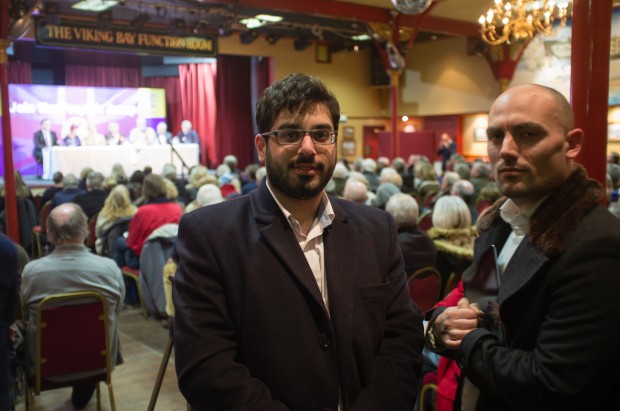
Ukip expected to hoover up disaffected shire Tories, but the leadership has been struck by the response in Labour’s heartlands — as Farage puts it, from Birmingham to Hadrian’s Wall. ‘When I ran the by-elections, never did I envisage the numbers of ex-Labour voters prepared to back Ukip,’ says Bruni-Lowe. The party’s support in the north of England has trebled since the last election.
Ukip fares poorly in Scotland, where it has a rival. Nicola Sturgeon also talks about borders and denounces the Westminster elite. But the SNP’s success is instructive. The party spent years gnawing away at the Labour vote at a time when Scottish Labour had grown used to winning without fighting. Since the independence referendum in September, the Labour vote has collapsed. The SNP is now on course to pick up 35 of Scottish Labour’s 41 seats. Come 2020, Ukip hopes to achieve a similar coup in the north of England. ‘It’s a bit like a rotten window frame,’ says one Ukip source, ‘you probe with your finger what looks like solid paint and it goes straight through. These are literally rotten boroughs.’
Ukip is confident that both Reckless and Carswell will hold on to their constituencies in May. As well as a handful of southern coastal seats, its main hopes further north are Boston & Skegness, Heywood & Middleton and Dudley North. In these seats, as every-where, Ukip’s strategy is to find candidates with genuine local connections.
If Ed Miliband takes power and continues with austerity — as even Ed Balls admits he will have to do — Labour’s support could shrivel. Then Ukip would pounce. The Tories may well be pushed into fourth place in areas such as Tyneside and Rochdale. Meanwhile Ukip is building Labour-friendly policies. It now bashes big business as well as big government, advocates welfare increases and pledges to pour billions more into public services. Mark Reckless told me that: ‘Ukip is now the party of the NHS.’ A rather audacious claim, given that Ukip’s other MP, Douglas Carswell, was until recently calling for the wholesale restructuring of what he used to call the ‘National Sickness Service’.
So Ukip is heading towards where it thinks the most voters are. If the party manages to increase its parliamentary presence by just one seat, its strategists will be happy — as long as that seat is South Thanet. Farage stood there ten years ago and only won 5 per cent of the vote. Much has changed since then, and he is the bookies’ favourite to win. It helps that Laura Sandys, South Thanet’s popular Conservative MP, is standing down. But if Farage can’t overturn the 17 per cent Tory majority, he will probably resign. And if he goes, there is a good chance Ukip will collapse.
Farage’s force of personality has held the party together in recent years. Ukip’s membership has boomed, but so have its contradictions. The party has split into the different factions: purple Ukip (the libertarians), blue Ukip (disgruntled Tories) and red Ukip (ex-Labour/working class). Without a charismatic leader — and there appears to be no one of Farage’s calibre among the likely successors — it is hard to see these groups sticking together. When I asked Farage what will happen if he doesn’t win South Thanet, he admitted: ‘It could be a car crash.’
So Ukip is throwing everything it has at South Thanet, which explains Farage’s unusual disappearance from the national media in recent weeks. His absence was so conspicuous that rumours began to surface about his health. There were whispers about the return of the testicular cancer he had in his twenties. Farage ended up having to tell a crowd at Ukip’s spring conference that he is ‘fit as a blooming flea’. He even drinks ginger beer these days.
Ukip’s South Thanet branch has been writing to residents on a ward-by-ward basis, inviting them to old-fashioned town-hall style meetings to meet Farage and their local council candidates. I went to see him speak at one last month. He was in his element, delighting the crowd. The biggest cheer came when he promised to slash hospital car parking charges. This is how he intends to win his seat: by personally addressing thousands of voters, winning over the curious and recruiting new campaigners.
Nigel Farage speaking to a group of residents in Broadstairs, Kent. Photo: Sebastian Payne/The Spectator.
The slogan for Ukip’s campaign will be ‘Believe in Britain’ — a phrase designed to position Ukip less as a political party than, as its campaign chief puts it, as a ‘state of mind’. ‘This strapline has the ability to do for Ukip what “Things Can Only Get Better” did for New Labour,’ says Bruni-Lowe. If millions of voters decide, as they did in the European elections last year, that Ukip reflects their state of mind, the laughter from the establishment will have to stop.
The era of stable governments is over
 Join us on 23 March for a Spectator discussion on whether the era of stable government is over with Matthew Parris, James Forsyth, Jeremy Browne MP, Vernon Bogdanor and Matthew Goodwin. The event will be chaired by Andrew Neil. In association with Seven Investment Management. For tickets and further information click here.
Join us on 23 March for a Spectator discussion on whether the era of stable government is over with Matthew Parris, James Forsyth, Jeremy Browne MP, Vernon Bogdanor and Matthew Goodwin. The event will be chaired by Andrew Neil. In association with Seven Investment Management. For tickets and further information click here.
Got something to add? Join the discussion and comment below.
Get 10 issues for just $10
Subscribe to The Spectator Australia today for the next 10 magazine issues, plus full online access, for just $10.
You might disagree with half of it, but you’ll enjoy reading all of it. Try your first month for free, then just $2 a week for the remainder of your first year.


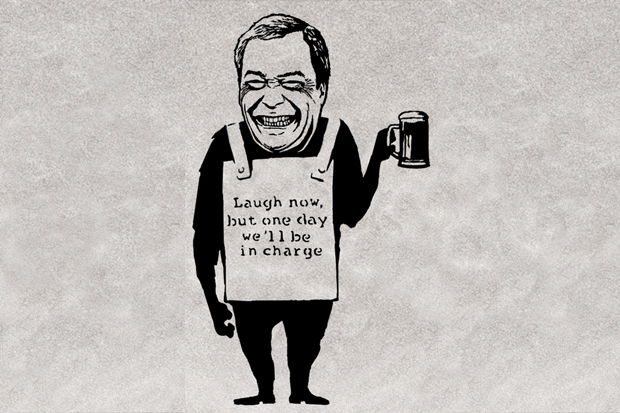


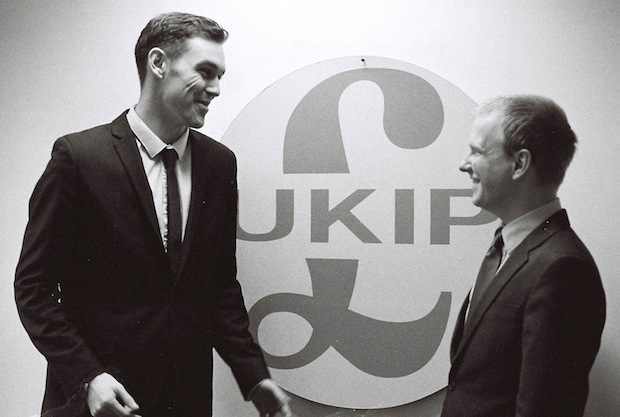
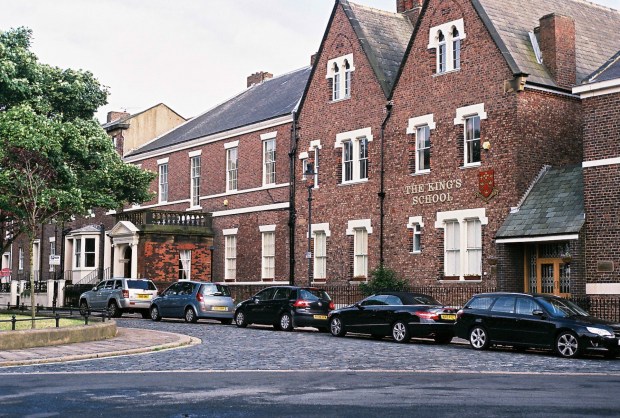
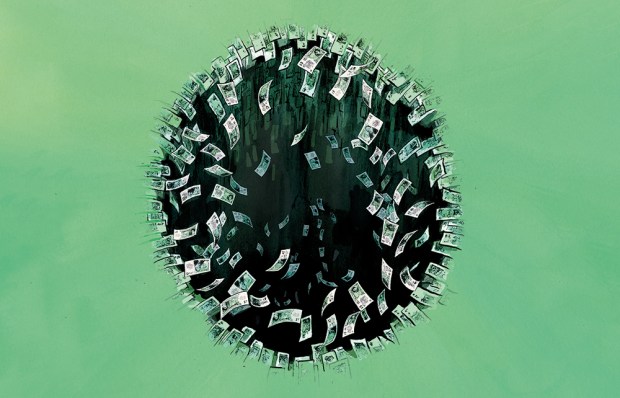







Comments
Don't miss out
Join the conversation with other Spectator Australia readers. Subscribe to leave a comment.
SUBSCRIBEAlready a subscriber? Log in